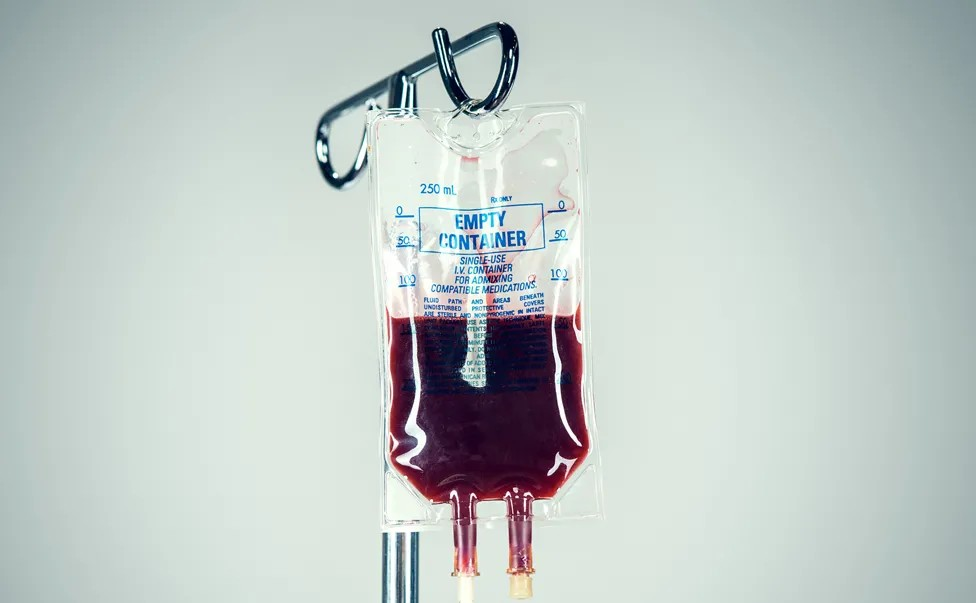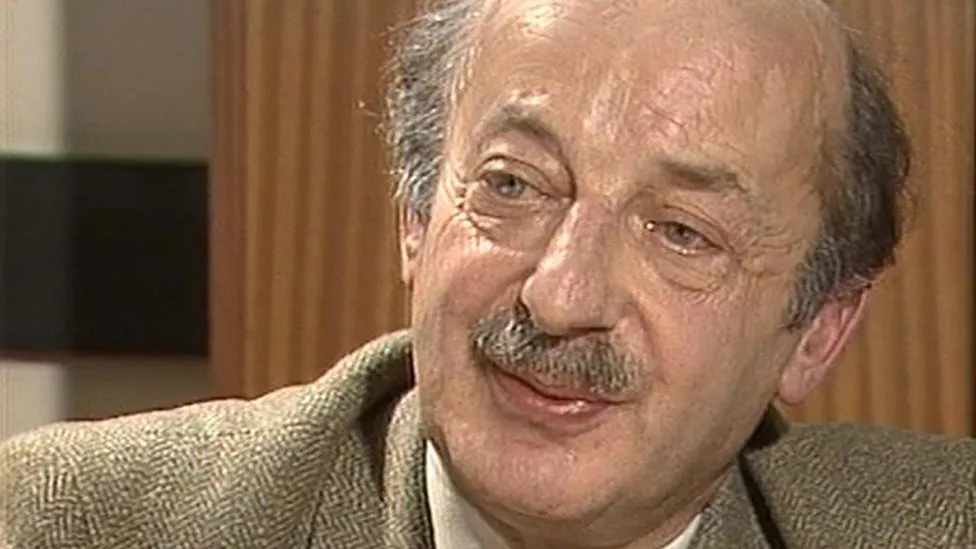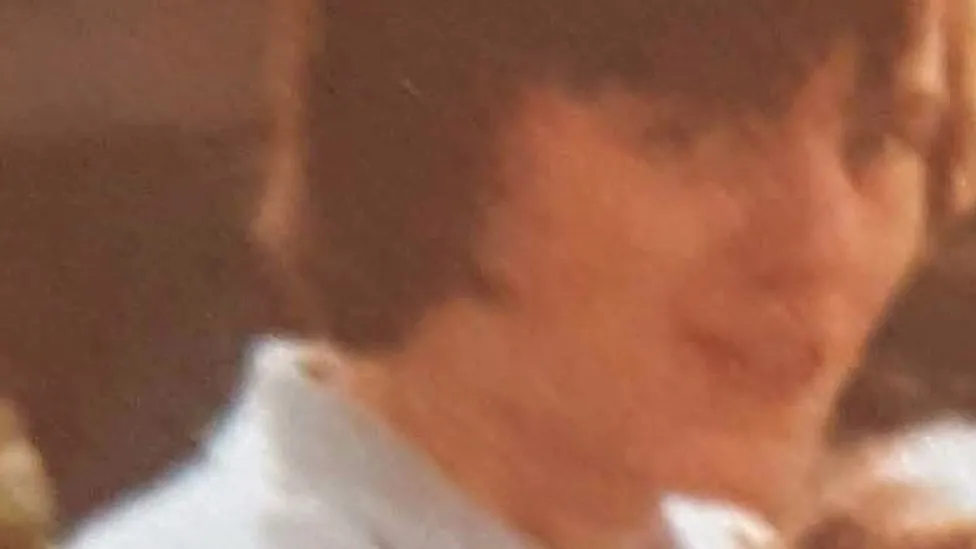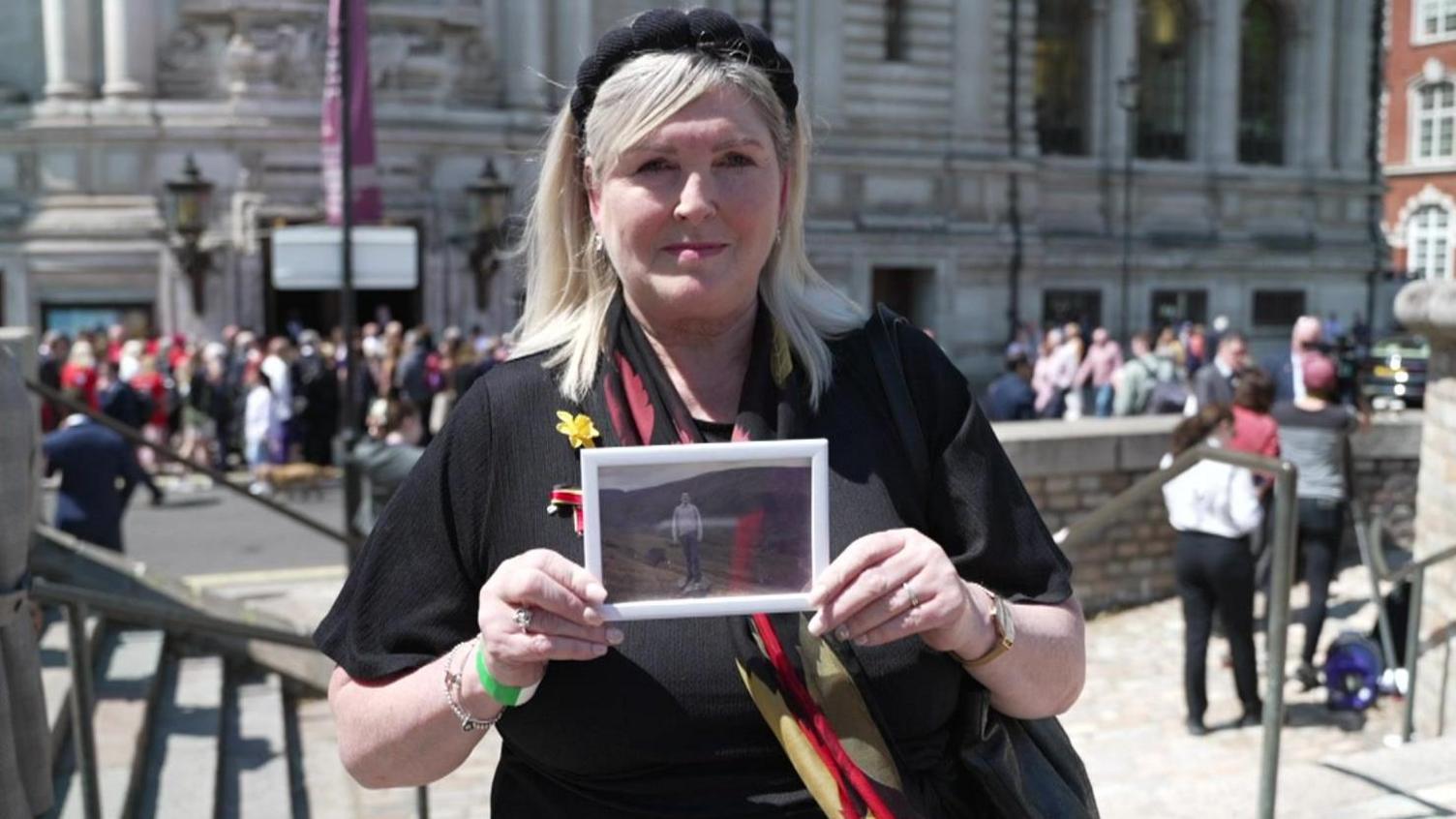Welsh minister apology for infected blood 'tragedy'

Many haemophiliacs were given infected blood products as part of their treatment.
- Published
Health Secretary Eluned Morgan has apologised to the Welsh victims of the UK-wide infected blood scandal, calling it a "terrible tragedy".
Patients contracted HIV or hepatitis from contaminated blood products in the 1970s and 80s, leading to around 2,400 UK-wide deaths.
The five-year inquiry said the truth had been hidden and victims had been "repeatedly" failed by doctors, the NHS and government.
Around 400 people in Wales are known to have been infected, but this does not include others who have died or may not have known they were infected.
Evidence was heard from families in Wales in the summer of 2019, when the inquiry came to Cardiff.
LIVE: Follow all the latest news and updates
- Published20 May 2024
Mum still feels guilt for son's infected blood death
- Published20 May 2024
This was the worst treatment scandal in the NHS, said Ms Morgan.
"While it pre-dates devolution, as the cabinet secretary for health and social care in Wales, I want to apologise to all those who were infected and have been affected by this terrible tragedy."
The report makes a number of criticisms specific to Wales, external - including the role of a leading Cardiff-based haematologist, Prof Arthur Bloom, whose opinions the inquiry chairman said "disasterously" over-influenced the UK Department for Health and Social Security (DHSS).
The inquiry also examined the role played by the Welsh Office and later the Welsh government.
Criticisms include:
Infections leading to deaths, illness and suffering were caused in part by “the inept, fragmented system by which the blood services of England and Wales operated"
Available evidence suggests that “for the most part” and certainly in the period prior to devolution Wales “followed the path" charted by the DHSS at Westminster.
“There was no independent Welsh Office action concerning the risk of hepatitis from blood and blood products, although it was recognised as a hazard"
There were some discussions with the Welsh Office about Aids, independent of the DHSS, such as a meeting in May 1983 involving the chief medical officer for Wales and other experts but this "did not result in any action”.
After devolution, the Welsh government “largely echoed the approach taken by the DHSS in London"
It said criticism of the Government in England thus applied to Wales too – “except for the added criticism that policy on infected blood was determined with a lack of curiosity as to whether the English position was actually justified"

Prof Arthur Bloom, who died in 1992, had been based in Cardiff and was one of the UK's leading haematologists
The report also heavily criticises the influence and actions of Prof Bloom, who led the Cardiff Haemophilia Centre,
It said his views “overly influenced the way the DHSS viewed the emergence of Aids" and the threat posed to people with bleeding disorders.
Prof Bloom, who died in 1992, was one of the leading experts in the field through the 1970s and 1980s.
The inquiry found he “shaped the views of the Haemophilia Society” who in turn made representations to the department.
“There was an uncritical acceptance of his line of thinking and a failure to probe his advice," said the inquiry report.

Haemophiliac Kevin Slater, from Cwmbran, was 20 when he developed Aids, and died in 1985
Kevin Slater, 20, from Cwmbran, Torfaen, became the first haemophiliac in the UK to test HIV positive and die of Aids in 1985.
But he was not informed that he had been diagnosed for at least 18 months and records show it was recommended that the diagnosis be kept from him.
Mr Slater had visited University Hospital Wales, Cardiff, in 1983 and Prof Bloom was aware of his case.
But when Prof Bloom later wrote to all haemophilia directors to give advice, his letter issued with a Dr Rizza suggested “treatment should continue as before, despite the risks of Aids in addition to hepatitis".
Sir Brian Langstaff , inquiry chair, said Prof Bloom "must bear some of the responsibility for the UK's slowness in responding to the risks of Aids to people with haemophilia".
Speaking after the release of his report, Sir Brian said the inquiry believed one of the sources for a 1983 Mail on Sunday story headlined "Hospitals using killer blood" was "Prof Bloom's respected senior colleague in Cardiff, who was reluctant at the time to be identified as a whistleblower".
Prof Bloom at the time said he was unaware of any proven case in the UK and there was no need to change their treatment, Sir Brian said.
He added that "disastrously" the DHSS was "over-influenced by his advice, in particular his advice to continue importing commercial factor concentrates".
The inquiry report says “the complacency and absence of any practical advice to reduce the risk, represent a failure of leadership and a missed opportunity".
Its recommendations include that the NHS in Wales should take steps to ensure that those “lessons to be learned” which relate to clinical practice should be incorporated into every doctors training.
It also said the operation of duties of candour in Wales should be reviewed.
Finally, it recommends that a separate permanent memorial is considered for Wales to victims, as well as in each of the UK nations.
The UK government has said it accepts the "moral case" for compensation, and interim pay-outs of £100,000 each have already been made to about 4,000 survivors and bereaved partners.
The Welsh government said it would work with the UK government to ensure Welsh beneficiaries and their families were "recompensed in keeping with the inquiry’s interim report on compensation".
'His life did mean something'

Susan Hughes lost her brother Alan, who was infected while a teenager
Susan Hughes, from Caerphilly said her brother Alan Jones was contaminated with HIV and Hepatitis C 40 years ago, after being given Factor VIII for his haemophilia.
“He put all the faith in the doctors,” she said. “He was contaminated at 15 and not told until he was 17, and he was told without my parents.
“It destroyed the family – it certainly destroyed my parents, who found it difficult to live with what happened to him.
"At the time the stigma was really bad and through no fault of his own we all suffered.”
She said today had been an emotional one.
“I wish my parents were both here, but they’ve passed on.
"I hope they’re looking down because it’s for them and him - his life did mean something. That’s what my parents were always so upset about.”
What has been the response?
Lynne Kelly, chair of Haemophilia Wales, said people already knew a lot of what had happened but it needed to be put on public record and there was still "disbelief” at seeing it there in “black and white”.
Plaid Cymru leader Rhun ap Iorwerth, who is also chair of the Senedd's cross-party group on haemophilia and infected blood, said justice was now needed "at pace".
He said: “This appalling miscarriage of justice has taken the lives of too many and ruined so many more, and for far too long, the voices of those who were impacted by this scandal were silenced."
Welsh Conservative health spokesman Sam Rowlands said: "While this inquiry has shone a light on a dark time, it is right that more is done to support and compensate those survivors suffering with ill-health to this day.”